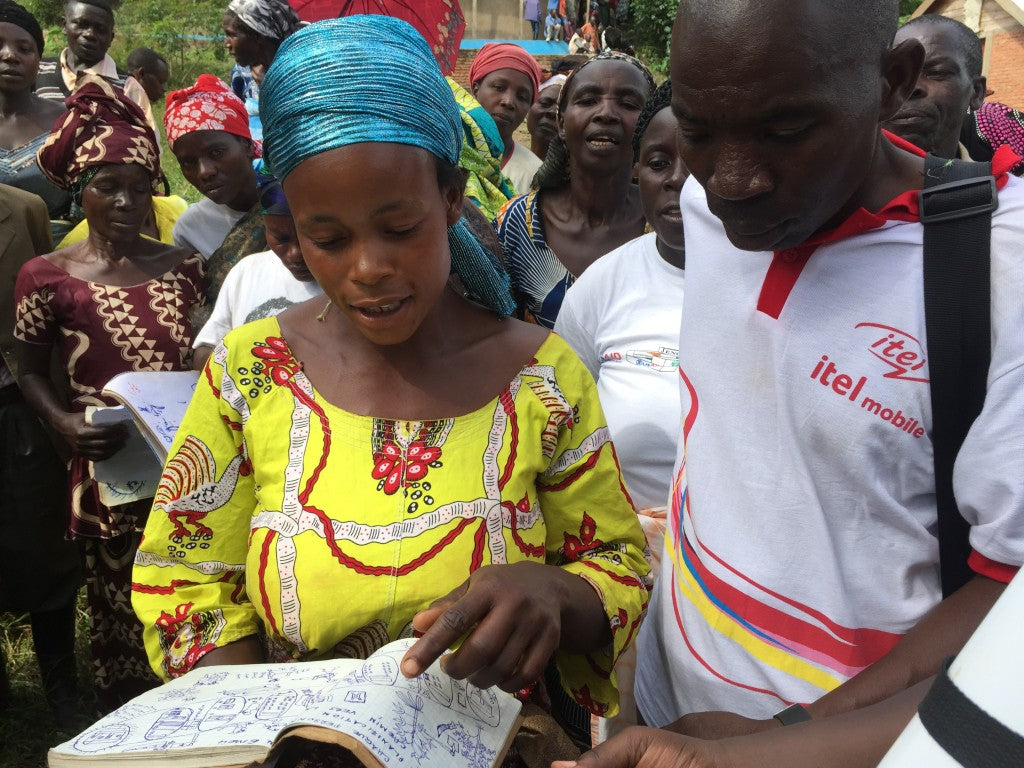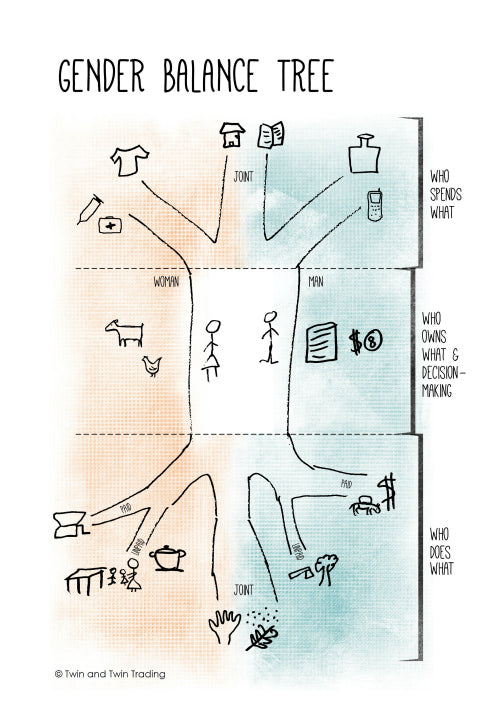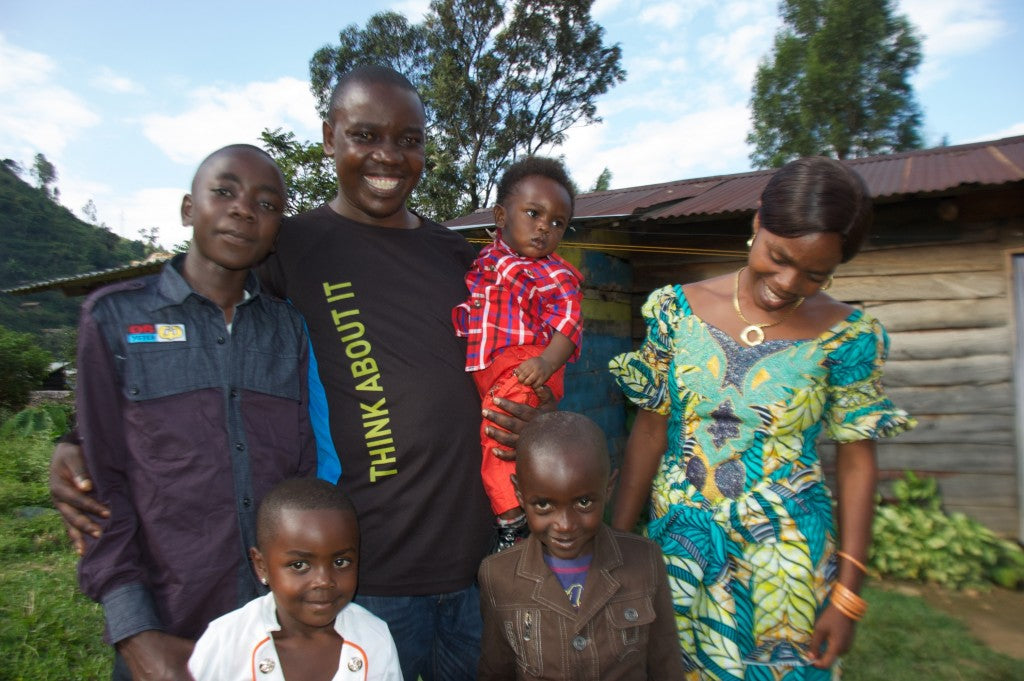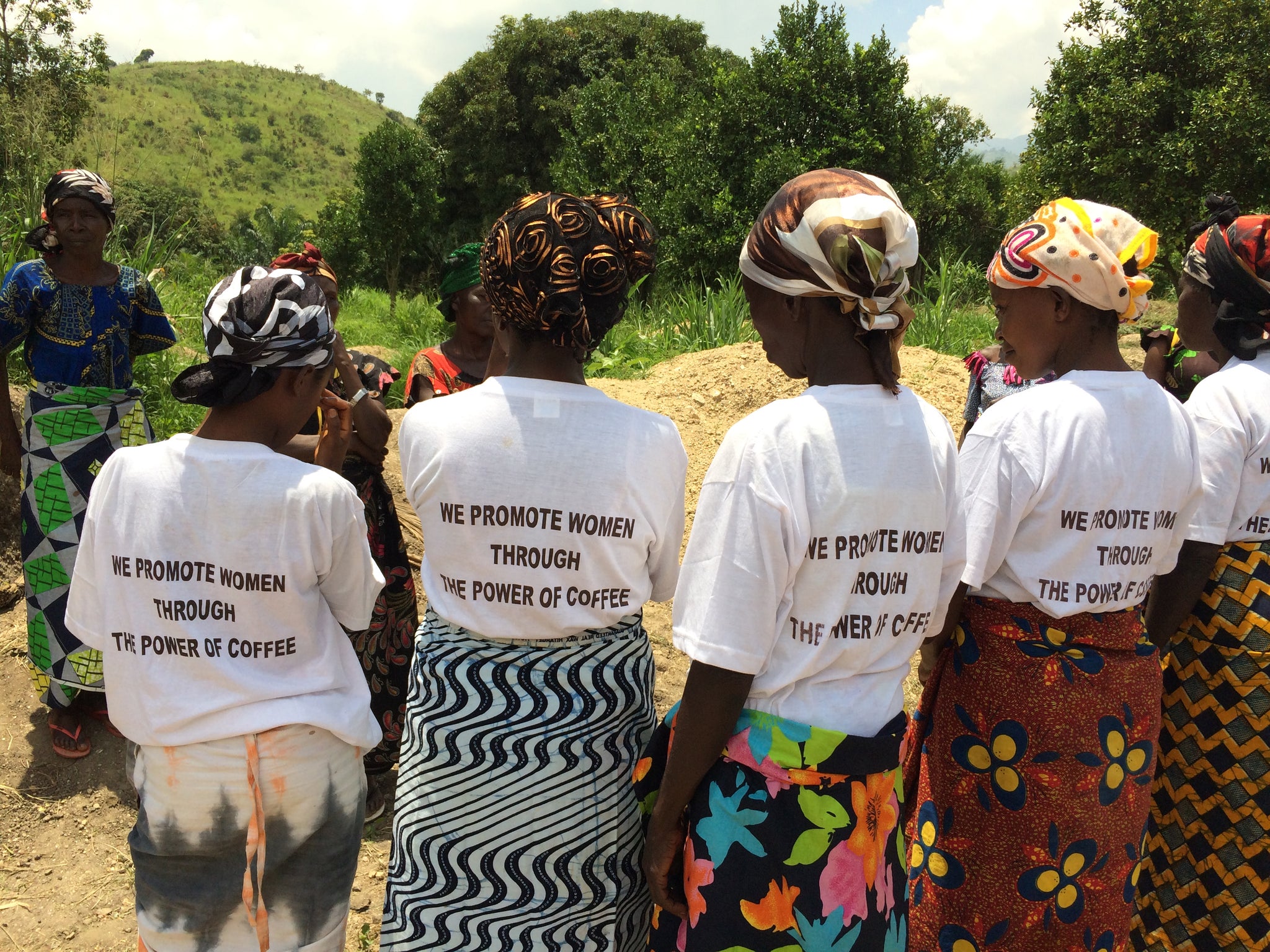This post comes to us from Herman Chirihambali Lwango, OTG's Community Liaison for Project Congo in South Kivu, DRC. Herman reports on the community impact felt within the Muungano coffee cooperative as a result of the Gender Action Learning System, or GALS, which is a series of workshops focused on cooperation and mutual goal-setting within family relationships. Through GALS, the women of Muungano are more respected and valued for their contributions to their family and their farming cooperative. Higher Grounds is a proud funder and collaborator in this important project with our coffee growing partners and supply chain allies.
(Pictured above: women farmers of Muungano's Nyabirehe community)
I heard about Gender Action Learning System (GALS) for the first time at Nyabirehe, one sector of the Muungano coffee cooperative in South Kivu province, DRC. It had been two years since I started working with On the Ground and started to visit the GALS program at Nyabirehe. At the beginning I couldn’t understand anything about the drawings women and men were making.
I had to come back to Nyabirehe twice in order to understand what GALS is. As with me, so many readers will have some questions to understand the GALS but by reading the sentences below you will see its great impact on the community of Nyabirehe.
[One GALS participant] is Riziki Kacheranga; she is 32 years old, separated with her husband nine years ago, and has five kids at her home, among them 2 adopted orphans. She told me, “The GALS is more important than food, money, and distributions that NGOs are giving in their communities. I used to receive support from NGOs but the one from On the Ground (GALS) is the most important because thanks to it I have started to build my own iron sheets house according to the vision and determination I took two years ago through the GALS. All the village members are now learning from us and so many wish to attend the [trainings].”
Once we arrived, with Richard from Twin [a UK-based coffee NGO and an On the Ground partner], at the school where the participants used to meet, I had more time to talk to other GALS participants. I appreciate so much the fact that they were feeling free to talk and share their experiences and success with GALS.
I am lucky because I am able to interact and understand most of the local languages, like Kihavu, Mashi, Kihunde, Kitembo, and also I speak Swahili, French and English; this enables me to feel and understand deeply what they are learning in the GALS.

(Pictured above: graduates of the GALS program)
I met so many participants, among them Rachel Kajambere, who is 28 years old and is married to Bahati Lushamba, with [whom] she has three kids. They attended the GALS early in 2013 but so many more attended it in 2014 and 2015 [when the project received more funding from OTG]. At the question of what they do learn, Rachel told me that they learn by drawing; even if they don’t know how to read and write, they are able to draw.

(Pictured above: the Gender Balance Tree, a tenet of GALS)
They learned so many things, she said, among them “how to make a vision in our household with the participation of the wife, husband and children; about the participation of women in the management and how to make a common control of the family resources; about the equity tree, the tree of challenges and solutions, the relationship tree, the tree of sharing ideas with others, the tree of work and success, and the diamond of justice; we learned so much [about] transparency in the household.”
“How do you make a vision and achieve it?” I asked Rachel.
She responded: “First in the household we must have a realist vision, we must know our current situation, we all together identify the opportunities that may help us to achieve our vision. We must also identify all rubbles that can block the achievement of our vision, [and] we have to know the targets and then set the road towards the achievement of our vision.”
I asked another woman, 47-year-old Furaha Kacheranga, married mother of 12 children, what benefits she has gotten from GALS. She told me this in Kihavu: “Nani ngala mundu kugerera GALS.” That means, “I am now also a person through GALS.” This is an expression that means before GALS she was nothing in our community, she didn’t have any consideration in our community, and she was economically weak and very poor, but thanks to GALS and the credit and saving groups, there is great harmony in her household, and her husband is more responsible to the wellbeing of his family and even his own health. “I now contribute to the decision making in my household,” she said, “and there is transparency in our modest finances. My husband was [buying several bottles of beer for himself], but now if we have money, [he will] buy just one or two bottles and bring them home for sharing. [And now] our kids are going to school.”
Another progress [report]: the school where our kids are learning does not have desks. Through GALS, the participants set a collective goal of buying 25 desks per classroom per year, and after one year the desks for the first classroom are ready. We are congratulating ourselves, and our deep congratulations to Twin and On the Ground for their hard work.
When I asked another man what could be done again with GALS in the Muungano coffee cooperative, [his] first wish was to see the GALS being extended in other sectors. GALS is very important for the communities that are living in rural regions. By visiting the GALS program at Nyabirehe, I [personally] learned a lot and started to practice in my household.
At Nyabirehe, I realized that the GALS participants are free to talk to the public, sharing their success both for men and women. Remember that according to the Bahavu and Bashi cultures, women don’t have the right of talking in front of men, and they had no right to the decision making in their households and communities. But now gender equally is a reality at Nyabirehe. A few years ago before GALS, I couldn’t imagine a woman at Nyabirehe talking in front of men, or a woman participating in the decision-making in her household.
The GALS has improved the economy of so many households. The women and children are now participating in the decision-making in their household and community, and they have now joint planning and transparency in their households.

(Pictured above: Herman and his family)
The wish of many of the participants is to see the GALS be extended in other sectors of Muungano coffee cooperative.






